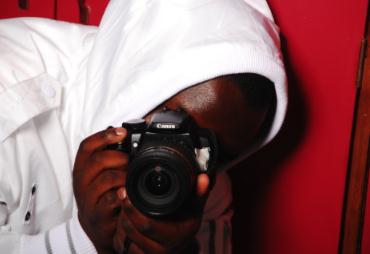What can ginkgo biloba teach those struggling for social justice?
Well, plenty . . . if you take the time to learn, explains University of Toronto student Jeff Tanaka. Known for their resilience, ginkgo plants were among the first to sprout new growths after the US bombings of the Japanese cities Hiroshima and Nagasaki in 1945. And while urban planners try to keep female ginkgos — notorious for dropping smelly seeds — from public view, one male plant out of every hundred changes its sex over the course of its lifetime.
Tanaka and fellow U of T students are leading a conversation on the healing power of plants — medicinal, spiritual and political — at the upcoming fifth-anniversary conference of Lost Lyrics, a Toronto organization building an alternative education movement. It’s just one of many workshops and panels aimed at valuing sources of knowledge that mainstream education institutions can’t — or won’t.
Lost Lyrics works with youth in the city’s Jane-Finch and Malvern neighbourhoods, making space for artistic and leadership development and critical conversations about social issues. But with its focus on the concept and practice of alternative education, the organization goes beyond fashionable programming trends. The upcoming conference creates space for conversation about how education in Toronto links up with a broad, radical vision of social justice, says Amanda Parris, who co-founded Lost Lyrics with Natasha Daniel.
“We’ve been slated as a youth-led art program or a hip-hop program,” Parris says. “But this is about an alternative education movement, and this conference is our first opportunity to put that out there.”
The conference program reflects that commitment. Speakers will address race and masculinity in curriculum and pedagogy, and the complex relationships between aboriginal communities and immigrant communities of colour.
But the mix of keynotes also includes live performance. Unshackling Education, a play by the collective Elimu Sanifu, follows a Kenyan boy in the informal settlements of Nairobi who struggles to afford a coveted formal education.
Elimu Sanifu’s Rehana Tejpar, who taught in formal and informal educational settings in and around Nairobi from 2007 to 2009, says the play reflects the double bind educational institutions can present between the promise of opportunity and the effects of cultural imperialism.
“If you want to be serious about social justice,” Tejpar says, “then you’ve got to think about the ways that school does not allow all bodies, all races, all genders, all sexualities, all knowledge systems to exist on equal footing.”
Lost Lyrics students will deliver the annual “live report card” on the second day of the conference, presenting what they’ve learned directly to their families and communities. The community, in turn, “grades” them — not in letters, but in full sentences and paragraphs.
Parris says queer identities and struggles interweave organically with conversations about the politics of drugs, beauty ideals and hip hop. Rather than relegate queer issues to a specific day or week, a commitment to challenging homophobia and transphobia runs throughout the curriculum. Students often mention field trips to Buddies in Bad Times Theatre as their favourite Lost Lyrics moment. But when they do, Parris says, “it wasn’t ‘the time we went to the LGBTQ theatre to see the LGBTQ artist’; it was ‘the time we went to see d’bi.young at Buddies.'”
This careful and non-tokenizing attention to radical and undervalued sources of knowledge — queer dub poets, native-immigrant alliances, and even ginkgo biloba — makes Lost Lyrics an alternative education experience like no other.
The Deets:
The Roots of the Rose: Lost Lyrics Fifth Anniversary Conference
Sat, June 2 and Sun, June 3
Ryerson University
55 Gould St
The Roots of the Rose: Lost Lyrics Fifth Anniversary Conference

 Why you can trust Xtra
Why you can trust Xtra


